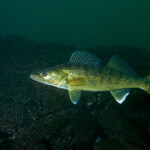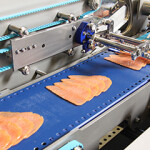USDA invests USD 13 million in four seafood innovation projects

The U.S. Department of Agriculture has invested in four seafood innovation projects as part of USD 13 million (EUR 12 million) in small business research and technology grants announced last month.
“The Biden-Harris administration is committed to investing, growing and supporting small businesses through increased market opportunities that also strengthen the food system nationally and locally,” USDA Chief Scientist and Under Secretary for Research, Education and Economics Chavonda Jacobs-Young said. “Science-based innovations from federally funded research, often developed through public-private partnerships, create products and services that increase productivity and enhance global competitiveness for the U.S. agriculture sector.”
Among the 76 small businesses to receive awards were four focused on seafood and aquaculture innovations.
Evergreen Aquatics in the U.S. state of Washington received USD 175,000 (EUR 163,000) to continue developing burbot – a cod-like freshwater fish – as a viable commercial aquaculture species. Burbot currently suffers from high mortality during its early life stages, and the USDA funding will help Evergreen Aquatics improve survival and viability in a hatchery setting.
“If this research is a success, hatcheries producing young burbot may have an enhanced ability to supply farms with fish at a stage where survival is generally high, and this interaction may benefit many aquaculture farmers and the communities they share,” the government noted in a summary of the award.
EmergingDx of Massachusetts, U.S.A., was awarded USD 181,000 (EUR 169,000) to develop a low-cost diagnostic platform that can detect flavobacterium psychrophilum in salmon aquaculture. The pathogen can have a major impact on farming salmon, and the company believes it can create a device that can detect it and prevent vertical transmission.
Sherlock Biosciences, also of Massachusetts, was awarded USD 175,000 (EUR 163,000) to develop CRISPR-based diagnostics that can be used in aquaculture. The new method would be cheaper and faster than standard diagnostic products and be usable in the field. Sherlock Biosciences’ target for this project would be white spot syndrome virus,“ a disease affecting shrimp farm operations worldwide.” The USDA funding will help the company improve and advanced an existing CRISPR diagnostic that can successfully detect the virus.
Washington state-based Pacific Hybreed was awarded USD 168,000 (EUR 157,000) to use crossbreeding to increase the production of farmed Pacific oysters. The company believes hybrid oysters can result in significantly higher yields, and the USDA funding will allow it to conduct field trials on various hybrids.
The USDA is accepting applications for the next round of awards through 19 September.
Photo courtesy of Shutterstock/vit08






Share